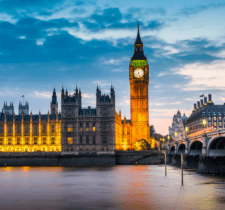California lawmakers voted in support of an AI safety regulation proposal, requiring companies to test models and disclose protocols.
The state of California has taken advancements towards implementing AI regulation, as reported by the Associated Press. In response to escalating concerns surrounding artificial intelligence (AI) technology, California lawmakers have taken a significant step by approving a proposal that aims to establish groundbreaking safety regulations for large-scale AI systems. If enacted, this measure could pave the way for nationwide regulations on evolving AI technology in the US. The proposal seeks to curb potential risks posed by AI by requiring companies to conduct thorough testing of their AI models and disclose their safety protocols publicly. This is to prevent malicious manipulation of AI systems, such as disrupting the state’s electrical grid or assisting in the development of chemical weapons.This new bill is part of a larger legislative package that lawmakers are considering. The governor of California will have until the end of September to decide whether to sign the bill into law, veto it, or allow it to become law without his signature.
The California AI bill has faced opposition from tech giants and lawmakers, who deem it unnecessary and potentially harmful to innovation.
Supporters of this bill argue that it will establish much-needed safety guidelines for large-scale AI models in the United States. The bill targets systems that require over $100 million in data for training. Thus far, this is a threshold that no current AI models have reached. However, the proposed legislation has faced fierce opposition from venture capital firms and tech giants such as OpenAI, Google, and Meta, the parent company of Facebook and Instagram. These companies contend that safety regulations should instead be established at the federal level and that the California legislation unfairly targets developers rather than those who misuse AI systems. Some California lawmakers, including former House Speaker Nancy Pelosi, have also expressed concerns about the bill, labeling it as “well-intentioned but ill-informed.” Industry groups such as the Chamber of Progress have criticized it for potentially stifling innovation and economic growth.
The fate of California’s revised AI bill remains uncertain, as while it has garnered support, the final decision rests with Governor Gavin Newsom.
Despite fierce opposition, the bill has gained support from Anthropic, an AI startup backed by Amazon and Google, after Senator Scott Wiener incorporated some of the company’s suggestions. The revised bill removed the penalty of perjury provision, limited the state attorney general’s power to sue violators, and narrowed the responsibilities of a new AI regulatory agency. Senator Wiener defended his proposal, emphasizing that it takes a “light touch” approach and balances innovation with safety. He argued that California is leading the way in responsible AI development. The proposed legislation comes as California lawmakers are actively addressing various AI-related concerns. This includes building public trust, combating algorithmic discrimination, and outlawing deepfakes used in elections or pornography. Governor of California, Gavin Newsom, who initially declined to comment on the measure, has previously expressed caution against excessive AI regulation. The fate of the bill now rests with him, and it remains to be seen whether he will sign it into law or pursue other options.
Discover how Aphaia can help ensure compliance of your data protection and AI strategy. We offer early compliance solutions for the EU AI Act and full GDPR and UK GDPR compliance with US Privacy Bundle. We specialise in empowering organisations like yours with cutting-edge solutions designed to not only meet, but exceed the demands of today’s data landscape. Contact Aphaia today.








